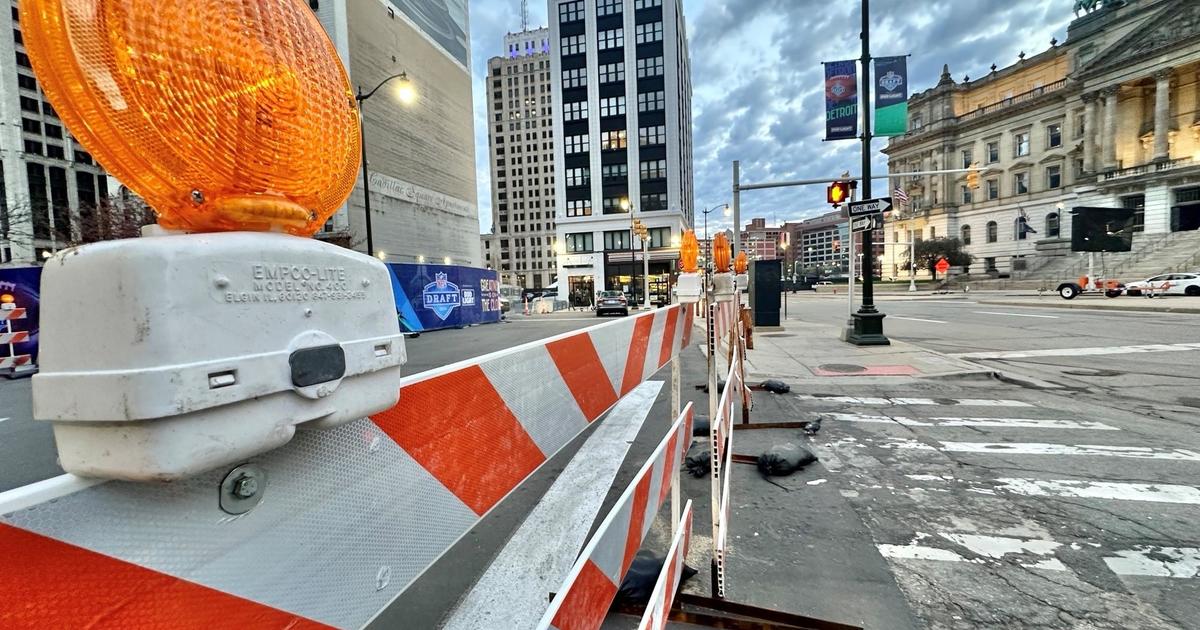Lions' Follett Weighs In On His Hero Seau, Says He's Glad He Walked Away
DETROIT (97.1 The Ticket) As Junior Seau's family announced they would let researchers study the NFL star's brain, a former Detroit Lions player weighed in on what's it really like to take major league hits day after day.
Linebacker Zack Follett, 24, described to 97.1 The Ticket's Terry Foster the concussion that ended his career on Oct. 7, 2010, just a year after he was drafted by the Lions. While others tempt fate, sticking around to suffer injury after injury, Follett decided to just walk away.
So what does an NFL concussion feel like? "It's just like getting a big rush to your head, you're dizzy, you kind of don't know where you are, and you just, you feel whoozy, but you also feel kind of happy," Follett said. "People take it different ways. I know people will start crying, they just can't control their crying. Their eyes just start pouring out tears."
He said he doesn't remember what happened after his own concussion, but he knows it's easy to get yourself back into the game. "The trainer asks you a couple of questions and you can easily lie," Follett said, adding that for many players their family is watching in the stands and they just want to keep playing.
Seau, 43, a man who appeared to have it all, was known to keep playing after an injury. He died from a self-inflicted gunshot to the chest Wednesday, with many wondering if the concussions he suffered during his NFL career played a part in whatever was going on in his head.
Follett, a California native, said Seau was always his hero.
"Being a kid growing up on the West Coast, the career that he had at USC, and also the career he had with the San Diego Chargers ... I wore No. 55 because I wanted to be like Junior Seau, being a linebacker, being someone fierce, loving the game, and having passion," Follett said, adding, "He meant a lot to me in my career."
Though they never crossed paths, Follett said he's mourning along with the rest of the football community, players and fans.
"Why would someone of this stature and has everything he has, because you look at it, what the world tells you to be happy he had. He was 20-year all pro, he was a super bowl champion, the pinnacle, he had it all, he had money, millions, successful businessman, and he commits suicide," Follett said. "That goes to show you, everything the world tells you will make you happy, can't."
And he's glad he decided to go a different way.
"I did have a serious injury, I realized there was more to life than to slave my body for this game. I would be in the same shoes of ... 'what do I really do with my life' ... My identity became established in Christ, and that's what's given me the strength to get through something so hard to smile throughout my days and to be able to watch football and enjoy it again," Follett said.
Four ex-NFL players are suing the NFL, including former Lions tackle Lomas Brown, for "not protecting" them enough from concussions, but Lions center Dominic Raiola recently said he would never sue because injuries come with the territory.
"That's true, I mean we have no reason to be crybabies about this, we know what we're doing to our bodies, and we're saying that the money and fame is better than the health of our body down the road," Follett said. "At the same time, a lot of us, I'm 24 years old, young kids, we're not very smart. We don't look at it as the future benefits of how it's going to affect our body down the road. We're interested in getting money and being famous and enjoying the good life."
"Who are we to say 'NFL it's your fault' when we know the reality of what we're doing to our bodies, we just want to take care of ourselves, in the wrong way I guess you could say."
Follett's friend Jahvid Best is trying to make a comeback after his own head injury -- and Follett says he's cautioning him about it.
"The advice I have is to be careful and definitely protect yourself, not just fron a brain compression standpoint, but from a business standpoint because he has to look out for what's best for him," Follett said, adding, "I've reached out to him, to try to talk to him ... He's had some serious ones (concussions)."
So, is it hard for strong, tough players to throw in the towel when they're injured and show vulnerability? Foster asked.
"Without a doubt," Follett said. "There's two identities, there's Zack Follett and then there's No. 49, so you have to hold up that reputation of that football player identity. For us to say 'I'm hurt so I'm going to walk away,' it is a pride issue. It's hard for a lot of guys to do that.
"We're tough guys, we've been programmed to have a tough mentality our whole life. We're gladiators, we're going to keep on going until we can't go any more."
And is his own body holding up after the beating it took from football?
"Honest answer: No, my body is messed up. I have three bulging discs in my neck. I wake up every single day in neck pain," Follett said. "It's rough, but when I was done playing football, I said I've worked out my whole life, I'm going to take three months off, not work out to see if my body can heal ... in reality, my body started to break down and fold on itself and I had to lift weights to make a strong back to keep my body intact so I don't just crumble down.
"It's a lifestyle change I had to do, I've accepted it and I have to live with it. I had fun, I wouldn't take it back or trade my experience in the NFL for anything."
Listen to the full interview below



